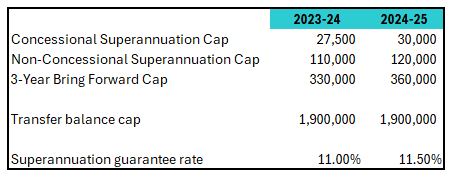Higher Education Debt:
Should I Make Voluntary Repayments?
Higher education debts (eg. HECS/HELP debts) that are unpaid on 1 June are automatically increased by indexation. Last year, we saw debts increased by an indexation rate of 7.1% (the highest indexation rate ever applied).
Now that the March 2024 quarter CPI numbers have been released, we can calculate that the indexation rate for the 2024 year is 4.7% (assuming the indexation calculation is the same as last year). We note, however, that the Federal Education Minister, Jason Clare, has indicated he is open to changing the way the repayments are calculated. We may see a change to the calculation in the Federal Budget in May.
Any reduction of the debt prior to this date will mean the amount of indexation will be lower (as the debt is lower). If you have an outstanding tax return that will reduce the debt, we recommend you lodge the return as soon as possible to ensure the payment from your tax return is applied.
If you want to make a voluntary repayment towards the debt, we recommend this be done no later than 22 May to ensure it is received by the ATO and applied to your debt prior to 1 June.
You can check your outstanding higher education debt via your myGov app if it is linked to the ATO. You can also find payment details for the debt in your ATO account via myGov. If you have any problems finding these details, please do not hesitate to contact us.
For your reference, the following debts are affected by indexation:
- Higher Education Loan Program (HELP, formerly HECS)
- VET Student Loan (VSL)
- Student Financial Supplement Scheme (SFSS)
- Student Start-up Loan (SSL
- ABSTUDY Student Start-up Loan (ABSTUDY SSL)
- Trade Support Loan (TSL)
DISCLAIMER: The information in this article is general in nature and is not a substitute for professional advice. Accordingly, neither TJN Accountants nor any member or employee of TJN Accountants accepts any responsibility for any loss, however caused, as a result of reliance on this general information. We recommend that our formal advice be sought before acting in any of the areas. The article is issued as a helpful guide to clients and for their private information. Therefore it should be regarded as confidential and not be made available to any person without our consent.

Jeanette has over 20 years experience as an accountant in public practice. She is a Chartered Accountant, registered tax agent and accredited SMSF Association advisor. When she is not helping business owners grow their empires, you will likely find her out running on the trails or at the gym. Book in to see Jeanette today.













